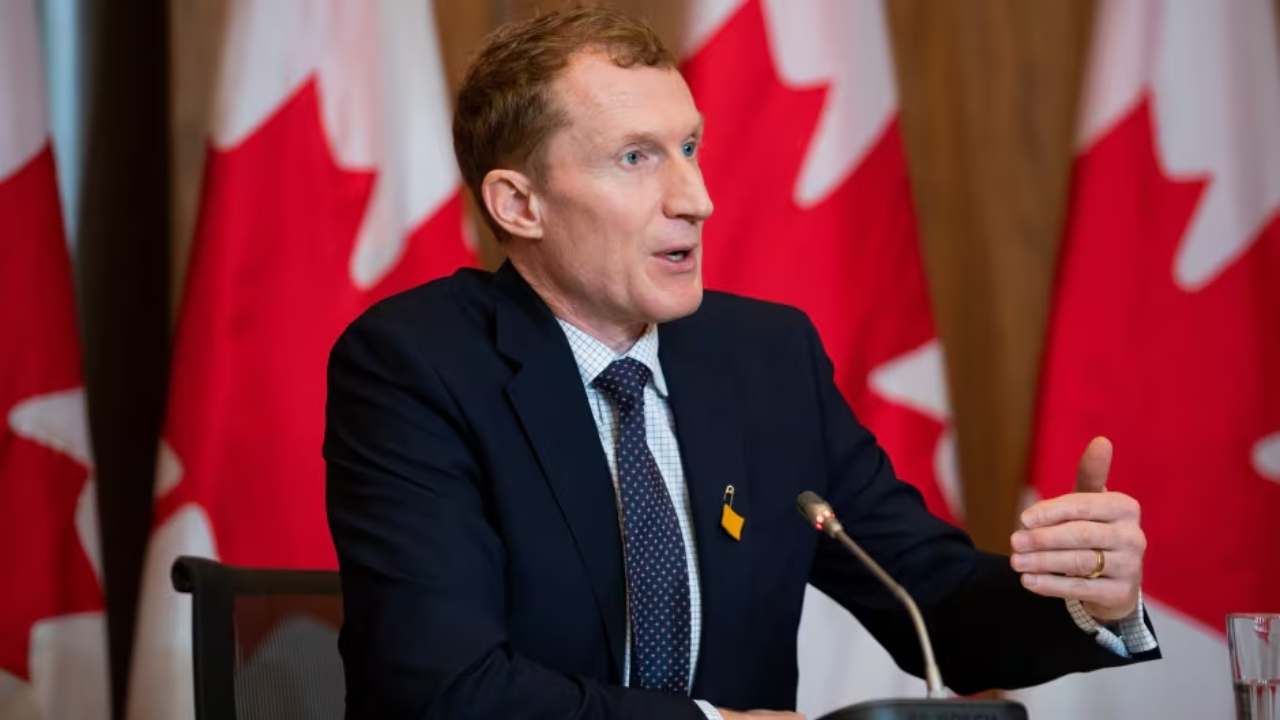

Immigration Minister Marc Miller. Photo: CBC News
In recent developments, Canada's Immigration Minister Marc Miller has announced a major shift in the country’s immigration policy, aimed at addressing concerns over housing and affordability. The federal government plans to implement new measures that will significantly cut back on the number of temporary residents.
Canada has long been known for its open approach to immigration, but now it’s preparing for a big change. Miller stated, “The era of uncapped programs to come into this country is quickly coming to an end. This is a big shift. You can’t just slam on the brakes and expect it to stop immediately.” This remark highlights the government's intention to recalibrate immigration practices, trying to balance economic needs with rising public concerns.
Under the current Liberal government, the number of temporary residents has surged, largely due to labour shortages worsened by the COVID-19 pandemic. However, this increase has fueled public dissatisfaction, with critics arguing that it has intensified Canada’s housing crisis and affordability issues. A recent poll shows that 60% of Canadians believe there are too many immigrants arriving in the country.
Miller acknowledged this concern, stating, “Canadians want a system that is not out of control.” He added, “They want a system that makes sense and still retains the welcoming aspects we’ve been proud of.”
To address these issues, the government has already started implementing new measures. In January, a two-year cap on international students was announced, aiming to cool down an "overheated" sector. Additionally, in March, the government introduced a cap on temporary immigration. The goal is to reduce the number of temporary residents to 5% of the total population over the next three years, down from 6.2% in 2023. This would represent a 20% reduction from last year’s figure of 2.5 million temporary residents.
Despite these targets, there are challenges ahead. The Bank of Canada’s report suggests that non-permanent residents might still make up a significant portion of the population in the near term. Miller remains hopeful, calling the target “reasonable” and hinting at additional measures involving post-graduate work permits and enforcement protocols.
Miller admitted that the rapid increase in temporary residents was not without issues, saying, “Every government makes mistakes. I think we are all human. But coming out of COVID, in particular, we were facing massive labour shortages.” This honesty underscores the government’s acknowledgment of past policy flaws and its commitment to address them.
Canada is also facing a record number of refugee claims, with over 18,000 filed in June alone. This surge continues despite efforts to limit asylum seekers through measures like closing the land border to asylum seekers and imposing new visa requirements. Miller suggested that stricter criteria might be applied to temporary resident visas to better manage this influx.
The government had previously considered a broad program to regularize undocumented residents, but this initiative is now on hold until after the next election. However, Miller mentioned the possibility of sector-specific programs in the meantime.
With these sweeping changes on the horizon, public sentiment is expected to heavily influence the political landscape. The measures aim to address the growing frustrations of Canadians who are concerned about current immigration levels. As the country heads towards the next election, immigration is likely to be a central issue, with citizens eager for a system that balances openness with practical concerns.
Having an 'Identity Verified' badge or being 'Identity Verified' simply indicates that an individual has submitted information to complete our identity verification process or we have conducted internal verification using various authorized websites. While this process includes safeguards, it does not guarantee that the person is who they claim to be.
If you encounter any issues with this profile, please report them here. While all consultants who are verified have RCIC ID, we may not have the latest data in terms of their renewal/cancellation/discontinuation of their RCIC ID.
The "Verified Consultants" profiles are created using publicly available information, including data from the IRCC website, official consultant sites, other listing platforms, and social media. Immiperts.com is an independent platform, not affiliated with IRCC or any registered immigration consultants. To update, claim, or remove your profile, please contact us at [email protected].
╳